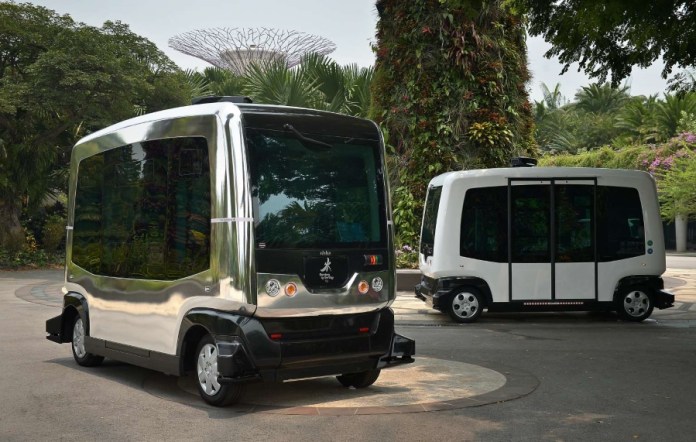2022 is the year that the first wave of Singapore residents will experience driverless buses as part of their daily commute. The three districts that are to the be the first to have the technology available is Punggol, Tengah, and the Hurong Innovation District (JID).
The decision was made a part of the country’s wider plan to adopt artificial intelligence (AI) and autonomous vehicle (AV) technology. This includes applications such as unmanned road sweepers, driverless campus buses, and truck platooning systems. Upon implementation the AI buses will complement human-drivers by running scheduled services during off-peak times and driverless shuttles will be used by commuters as and when needed.
“We expect that the autonomous vehicles will greatly enhance the accessibility and connectivity of our public transport system, particularly for the elderly, families with young children, and the less mobile,” said Transport Minister Khaw Boon Wan. He also said that by carrying out pilots using the AI buses in these three areas will allow experts a deeper insight as to how to best integrate new towns or improve the existing ones while considering the driverless vehicle community.
“The biggest challenge for autonomous vehicles is not the development of the technology, but how we can safely incorporate it into our living environment, through appropriate regulations and town planning,” said Khaw. Last year AI startup nuTonomy suffered an incident when one of its driverless cars collided with a lorry during a test session. However, the company did say that the accident was due to “an extremely rare combination of software anomalies.”
Located just outside Nanyang Technological University (NTU) lies Singapore’s first AV test centre. Here you’ll find no less than 3.2 km of track, kitted out with dummy vehicles and pedestrians for the driverless AI cars to navigate their way through. This type of technology will help transform the way in which urban communities exist and how people move around, says Mr. Khaw. “It is especially promising for Singapore because it can help alleviate the tight land and manpower limits that currently constrain our land transport system,” he said.
Professor Subodh Mhaisalkar is the executive director of NTU’s Energy Research Institute located at the AV test centre. He is confident the the test centre will accelerate the development of AV through the use of advanced AI technologies, including sensors and software.
Source StraitsTime




















